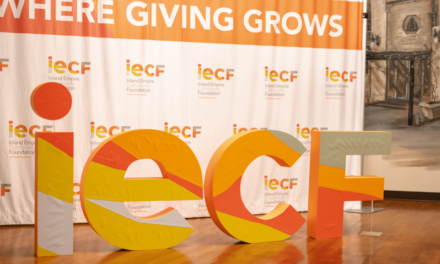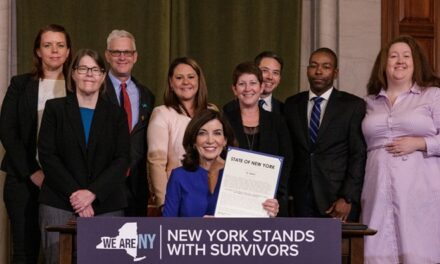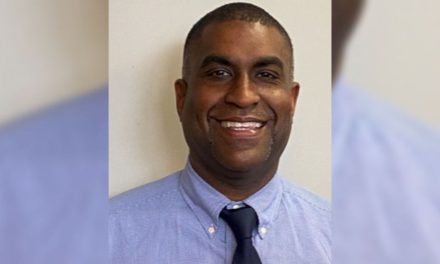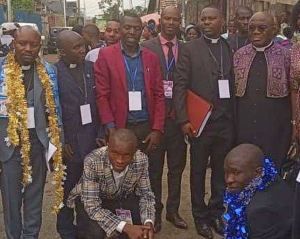By Nils Kinuani
For decades, the people of the Democratic Republic of the Congo (DRC) have faced horrific violence and humanitarian crises as a result of one of the deadliest armed conflicts in modern history. The tragedy has taken more than 5.4 million lives. While I am fortunate to have found safety in the United States, many Congolese people continue to suffer from the violence and ongoing conflict in the DRC. Meanwhile, there are many in the U.S. who are at risk of being torn from their families and communities and deported to a country where they would almost certainly face harm.
At the age of 18, I was resettled in the United States after my family and I escaped the first Congo war. This protection provided us with some certainty that we would not be separated from each other and forced to return to devastating violence. However, many others were unable to obtain safety and as a child I saw first hand the tragic human consequences of this disastrous war. In fact, many of my primary school classmates were abducted by rebel groups and forced to become soldiers. Sadly, a recent resurgence of violence in the DRC has continued to endanger the lives of people in the country. The United States has the responsibility to protect our Congolese friends and neighbors living in the U.S., so that they are not deported to this devastation.
In my work with the Congolese Community of Washington Metropolitan, I advocate for protections for Congolese immigrants, asylum seekers and refugees, one example being Temporary Protected Status, also known as TPS.
TPS is a lifesaving program that provides protection from deportation and work authorization to people who cannot return to their home country safely due to war, natural disaster and other extraordinary conditions. Human rights experts, members of Congress and the U.S. Department of State have pointed out, the life-threatening armed conflict and other crises in the DRC, particularly as the non-state, armed group, the March 23 Movement (M23), gains prominence and violence continues to escalate. More than 2 million people were displaced in 2022 and at least 6,000 others were killed. Conditions have only worsened this year as the conflict persists and natural disasters such as the tragic flooding in May which killed at least 400 people, compound the suffering of the Congolese people.
It would be unconscionable to deport Congolese people living in the U.S. to the DRC. The Biden administration has the tools to protect the lives of the 2,000 potentially TPS-eligible people from the DRC, who have lived in the U.S. on average for 17 years, contribute $30 million to the economy annually and live with 6,000 U.S. citizens. A designation of TPS for the DRC would save lives, strengthen our economy and keep American families and communities, including those in the DMV area where I now live, safe and together.
The facts on the ground are clear. The conflict in the Democratic Republic of the Congo is catastrophic. If Congolese people in the United States are forced to return to the DRC, they will be confronted with widespread human rights abuses and war crimes. This is not acceptable. Of the five countries with the highest number of refugees resettled in the U.S. in 2022, the DRC is the only country without a TPS designation. Congolese people living in the United States are integral members of the American economy and American communities. Like all people they deserve safety and protection. I urge the Biden administration to act quickly to protect Congolese nationals living in the U.S. with a designation of TPS for the Democratic Republic of the Congo.
Nils Kinuani is a human rights advocate and the Immigration Coordinator for the Congolese Community of Washington Metropolitan (CCWM).
The opinions on this page are those of the writers and not necessarily those of the AFRO. Send letters to The Afro-American • 233 E. Redwood Street Suite 600G
Baltimore, MD 21202 or fax to 1-877-570-9297 or e-mail to editor@afro.com
The post Temporary protected status could save Congolese lives appeared first on AFRO American Newspapers .











